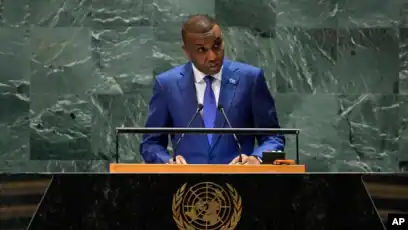By : Lloyd Mahachi
Somalia has declared Ethiopian diplomat Ali Mohamed Adan persona non grata, ordering him to leave the country within 72 hours. The Ministry of Foreign Affairs in Somalia accused Adan, a counselor at Ethiopia’s embassy in Mogadishu, of engaging in activities incompatible with his diplomatic role. This move is the latest development in the heated diplomatic dispute between Somalia and Ethiopia, which began when Ethiopia signed a Memorandum of Understanding (MOU) with Somaliland.
The MOU, which Somalia sees as an infringement on its sovereignty, would grant Somaliland recognition from landlocked Ethiopia in exchange for leasing 20 kilometers of seafront. Ethiopia and Somaliland have defended the MOU, but Somalia views it as a threat to its territorial integrity. This dispute has been escalating since April, when Somalia expelled Ethiopian Ambassador Muktar Mohamed Ware, alleging internal interference by Ethiopia.
The tensions between the two nations came to the forefront last month when Somali Prime Minister Hamza Abdi Barre addressed the U.N. General Assembly. Barre urged the international community to condemn Ethiopia’s violations, alleging that Ethiopia is attempting to annex parts of Somalia under the guise of securing sea access. Ethiopia’s former Foreign Minister Taye Atske Selassie rejected these claims, insisting that the MOU is based on existing political dispensation in Somalia.
The expulsion of Adan adds to the complex web of relations in the Horn of Africa, where sovereignty, territorial integrity, and geopolitical interests often intersect. Ethiopia’s response to this development remains to be seen, but history suggests there could be reciprocal measures or diplomatic negotiations to de-escalate the situation. The international community will be watching closely as this situation unfolds.
The diplomatic rift between Somalia and Ethiopia has significant implications for regional stability and security. As tensions continue to rise, it is essential for both nations to engage in constructive dialogue to resolve their differences and maintain peaceful relations. The situation underscores the need for diplomatic efforts to address the underlying issues driving the dispute and ensure that the region remains stable and secure.
Editor : Josephine Mahachi

